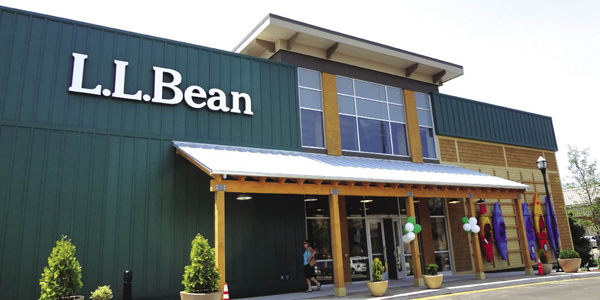Microsoft and L.L. Bean.

A continent apart from a product perspective, but just 100 yards from each other at the Danbury Fair Mall —further evidence that the retail sector is fast rebooting, with implications for landlords that have seen storefronts stay vacant for extended stretches.
In May in an op-ed in Forbes, a New York City hedge fund manager proposed a land bank that would allow strip mall owners to sell off their properties to the federal government, with the stipulation that the buildings be demolished (producing construction work while stabilizing existing properties) and held as “green space” until better development plans were created.
But don”™t rev up the wrecking ball just yet ”“ in Fairfield County, many of those vacant stores are finding tenants, whether in the mall, the strip mall, or on Main Street. Even as Circuit City, Borders Group Inc. and other chains succumbed to the recession, others moved in ”“ including companies not previously doing business here including L.L. Bean, the Microsoft Store, REI Inc. and WineNation.
Retailers statewide added an estimated 700 jobs in May, according to the Connecticut Department of Labor, pushing employment to nearly 183,000 people ”“ up more than 2,000 from a year ago, but still more than 7,000 below the level of five years ago.
“To me, the more important story has been what I have been saying for the past six quarters, which is that the retailers have very strong operating margins,” said Arthur Coppola, CEO of Danbury Fair Mall owner Macerich, in a May conference call. “When you multiply strong operating margins by strong sales levels and positive ”˜comp”™ sales results, you find yourself a retailer who has cash on their balance sheet. They’re making money and they”™re looking to expand their footprint and their store count across the board.”
Through 11 months of the fiscal year ending in June, Connecticut retail sales tax collections were up 17 percent from fiscal 2011, topping the $3 billion mark for the first time ever, with the impact of an increased sales tax not immediately known on overall retail sales in Connecticut.
Urstadt Biddle Properties Inc., among the largest retail landlords in Fairfield County, saw overall revenue drop 3.5 percent in the first six months of its fiscal year through April. That was due largely, however, to lease termination income recorded in fiscal 2011, with base rents up in the current fiscal year by about 5.5 percent.
While Greenwich-based Urstadt Biddle says it had a “quiet quarter,” in the words of company president Wing Biddle, and that it is taking longer to fill store spaces, it boasts a 91 percent vacancy rate across its 50-plus properties totaling nearly 5 million square feet, about a fifth of that total in Fairfield County.
Retailers remain very much under assault by dotcoms ”“ Amazon led the 100 largest retailers in growth last year at 43 percent, according to a National Retail Federation ranking published this month. Milford-based Subway was the only Connecticut company on the list with 8 percent growth.
In August, the NRF is expected to publish its annual “hot retailers” list — the fastest growing retailers regardless of size. Last year, perhaps incredibly, Westchester County, N.Y.-based Ascena Retail Group and its Dress Barn chain edged out Amazon with a whopping 59 percent growth rate.
In June, Greenwich-based Starwood Capital Group announced the formation of a new investment vehicle focused on retail, spending nearly $1.2 billion to buy seven malls outside the Northeast from Westfield Group.
When Starwood Capital CEO Barry Sternlicht spots an opportunity, he bets big. Previous investments have produced Stamford-based Starwood Hotels & Resorts Worldwide Inc.; Starwood Property Trust Inc., the largest “blind pool” company ever created, focused on distressed real estate after the crash; and New York City-based iStar Financial, which has invested $35 billion over two decades, with its portfolio including the Chelsea Piers entertainment complex in New York City.
“Shopping centers in the United States are undergoing a transformation as junior anchors and value retailers are rethinking store size and distribution needs, to the benefit of regional malls,” said Scott Wolstein, the Starwood Capital executive leading the new retail unit in Chicago. “We expect to build on this platform in the years to come.”


















